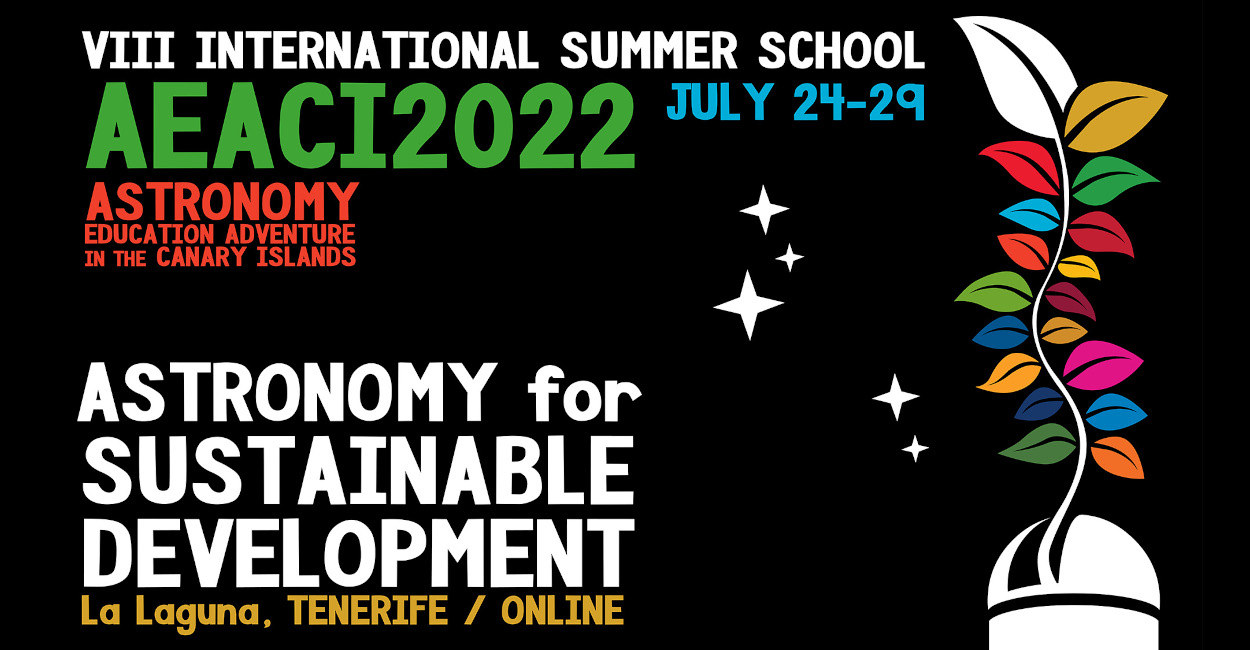
VIII International Summer School Astronomy Education Adventure in the Canary Islands 2022: Astronomy for Sustainable Development
The Instituto de Astrofísica de Canarias (IAC) and NUCLIO organize the eighth edition of the International School Astronomy Education Adventure in the Canary Islands under the theme “Astronomy for Sustainable Development”.
The school will be held in a hybrid format, both face-to-face in San Cristóbal de La Laguna (Tenerife, Canary Islands) and online, allowing participants from all over the world to enjoy the unique AEACI experience at their best convenience and in a sustainable way.
Teachers of all grade levels and subject domains, as well as informal educators, are invited to attend the school and dive into a real STEAM (Science, Technology, Engineering, Arts and Maths) experience.
– We will provide the participants (mainly pre-university teachers) with the tools to teach astronomy making an emphasis on several SDGs. We highly value that the scientific knowledge starts to be taught in schools linking it when possible to the biggest problems of humanity.
– We want to raise awareness that the basic sciences (like astronomy) have many side-applications that are used in our everyday life and that can be used for improving human well-being.
– Attendees to the school are from many different countries, so we expect debate among participants on the topic of “basic sciences and sustainable development” to be highly valuable.
Astronomy is one of the basic sciences, probably the oldest one. It not only answers to some fundamental questions of humanity, but also its research and related engineering innovation are drivers of development. Several astronomy topics are related to the sustainable development goals, and in the “VIII International Summer School AEACI 2022” these ideas will be treated so that professors can further pass them on to their young students. We believe that a sustainable World in the future depends on a well-informed youth nowadays.
An example is how astronomy can help to increase consciousness of the global warming by spreading the idea of what happens in planets with atmospheres rich in greenhouse gases (like the case of Venus, which has a temperature of above 400ºC due to the abundance of these gases). It is also valuable sharing the fact that the habitability of a planet can really change over the course of time (like the case of Mars, which used to be habitable but it cannot host life any more).
The link of Astronomy to other sustainable development goals, that will be covered in the school, can be found in one of our webpages.

